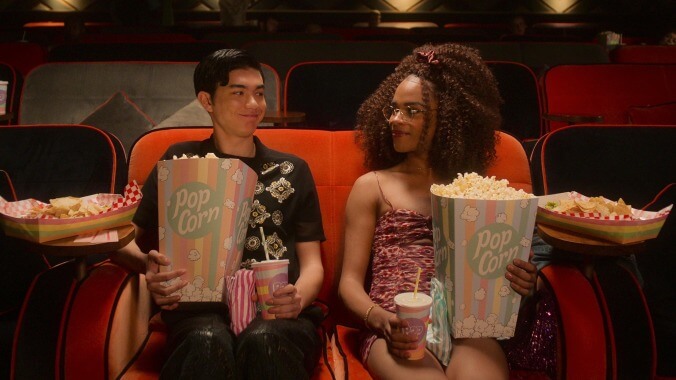Except, that’s not the whole story. While it’s true that a large number of teens—44.3% to be exact—think “romance in media is overused,” what Gen Z seems to really want is for their favorite TV shows and movies to explore a larger diversity of types of relationships, as opposed to outright nixing the sex scenes.
All of this comes from a new UCLA study called “Teens and Screens.” (You can read the full report here.) In their survey, the school’s Center for Scholars and Storytellers polled 1,500 young people ages 10-24 on their opinions on relationships in current media (only participants ages 13-24 answered questions about sex). 51.5% responded that they wanted to see “more content centered around friendships and platonic relationships,” and, in the question that’s driving most of the blistering headlines, 47.5% said they felt that “sex isn’t needed for the plot of most TV shows and movies.”
But these responses probably weren’t born from some sort of puritanical regression. Rather, they could represent a rejection of years of sexploitation on TV (i.e. Euphoria, The Idol, Game Of Thrones etc.) and content insisting that “every boy and girl friendship has to be romantic at some point,” in the words of one 16-year-old respondent. “I don’t like [that] every time a male and female character are together on screen, studios feel the need to make them fall [in] love. there’s [sic] a complete lack of platonic relationships in american [sic] cinema,” another 17-year-old added.
In general, it sounds like teens really want to see media that celebrates all kinds of relationships, not just hetero-romantic ones. 39%, for example, want to see more aromantic and/or asexual characters on screen. “The main [stereotype] I always see is a person who comes from nothing, falls in love and gets everything they always wanted. I feel sometimes it sets a mindset [for the] younger generation that all they need is a significant other to be happy,” one 23-year-old respondent clarified.
S0, yes, in a vacuum, teens may want less sex on TV, but it’s clear that what they really want is simply a more expansive media landscape where everyone can find some character or storyline they personally identify with. It seems like the kids are gonna be alright, after all.









































